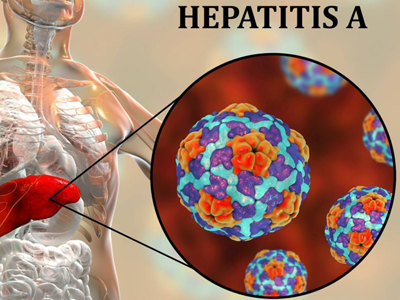

Hepatitis A is a contagious liver infection caused by the hepatitis A virus. People who get hepatitis A may feel sick for a few weeks to several months but usually recover completely and do not have lasting liver damage. In rare cases, hepatitis A can cause liver failure and even death; this is more common in older people and in people with other serious health issues, such as chronic liver disease.
The hepatitis A virus is found in the stool and blood of people who are infected. The hepatitis A virus is spread when someone ingests the virus, usually through:
Hepatitis A can be spread from close, personal contact with an infected person, such as through having sex, caring for someone who is ill, or using drugs with others. Hepatitis A is very contagious, and people can even spread the virus before they feel sick.
Contamination of food with the hepatitis A virus can happen at any point: growing, harvesting, processing, handling, and even after cooking. Contamination of food and water happens more often in countries where hepatitis A is common. Although uncommon, foodborne outbreaks have occurred in the United States from people eating contaminated fresh and frozen imported food products.
The hepatitis A vaccine is safe and effective. The vaccine series usually consists of 2 shots, given 6 months apart. Getting both shots provides the best protection against hepatitis A.